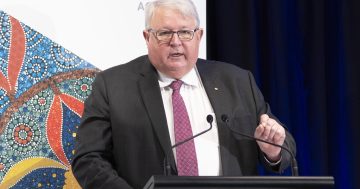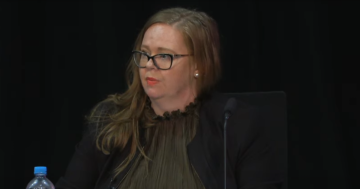 Members of the Queensland Public Service have been urged to take an interest in Professor Peter Coaldrake’s current review of the State’s public sector as it icould have an impact on their futures and the roles the Public Service plays.
Members of the Queensland Public Service have been urged to take an interest in Professor Peter Coaldrake’s current review of the State’s public sector as it icould have an impact on their futures and the roles the Public Service plays.
The advice was made in an Institute of Public Administration Australia (IPAA) article entitled Public Inquiries: What Are They and Do They Matter? by Scott Prasser, a Council Member of IPAA, as well as a public policy consultant and commentator.
Dr Prasser (pictured) said public inquiries like that of Professor Coaldrake’s had a long history in Australia and other Westminster democracies, appointed by Governments with clear terms of reference, their membership drawn from outside of Government and with public processes of review and reporting.
He said they took two main forms — statutorily-based Royal Commissions or Commissions of Inquiry, or non-statutory policy public inquiries .
“The recently-appointed Review of Culture and Accountability in the Public Sector clearly is a public inquiry,” Dr Prasser said.
“It has no powers to compel witnesses to give evidence. Nor are there any public hearings like most Royal Commissions.”
He said this was because the Coaldrake Review was not investigating a specific wrongdoing, but was established to assess the effectiveness of Queensland’s integrity system given recent concerns.
“IPAA members and Public Servants should take an interest in public inquiries because they have an impact beyond their often seemingly narrow focus,” Dr Prasser said.
“After all, the public sector is now a connected network rather than a series of separate and stand-alone organisations.”
He said modern Government increasingly required multiple Agency action, including across jurisdictions, to tackle policy issues.
“Furthermore, trust in Government seems to be in decline and there are questions about Public Service capabilities. Consequently, Governments are pressured to appoint public inquiries because of their transparency, expertness and perceived independence.”
He said the policy environment had become increasingly competitive, so Public Servants needed to assess where public inquiries fitted in to the architecture of modern Government and how these bodies affected their roles.
Dr Prasser’s full article can be accessed on the Queensland IPAA website at this PS News link.











